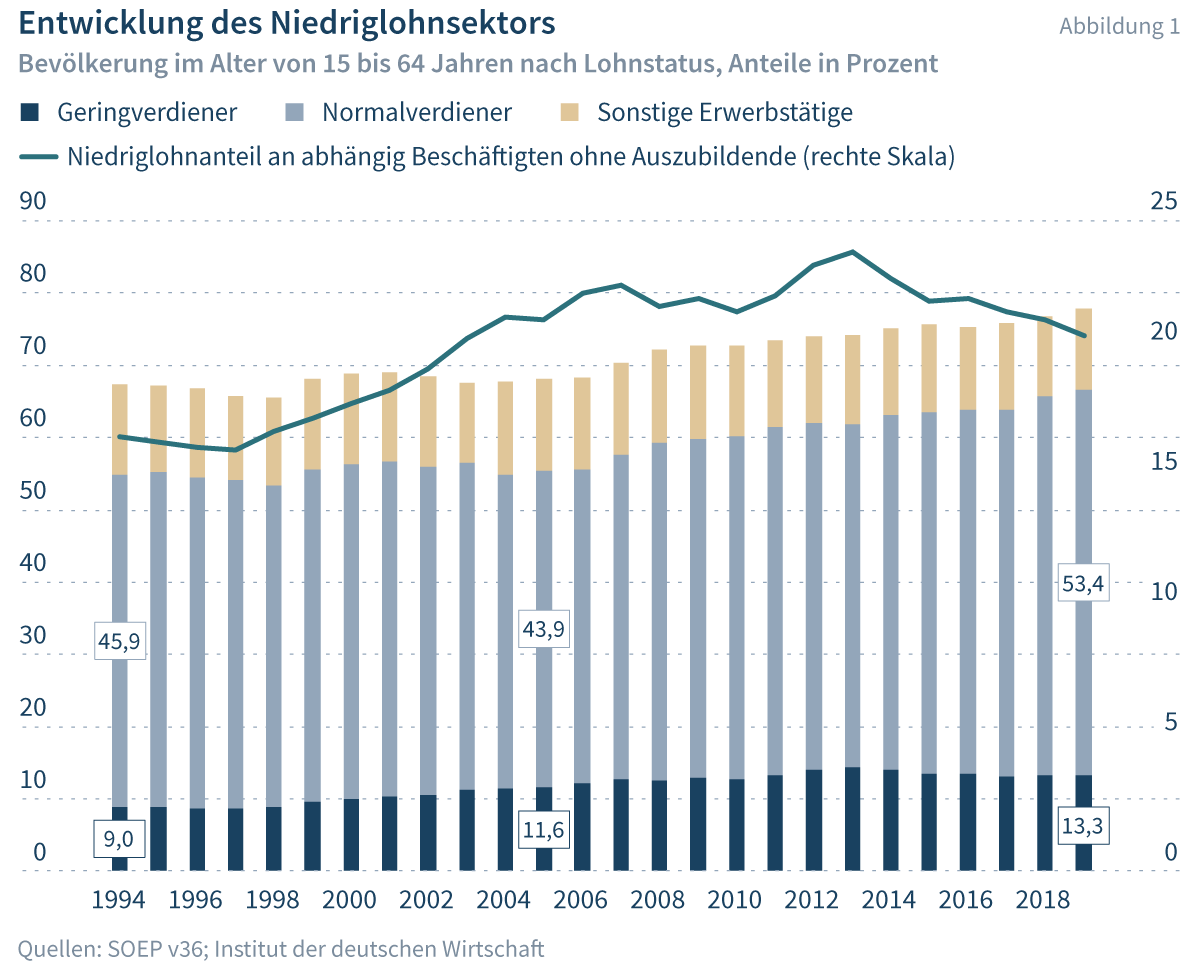Low-wage employment is often perceived as a societal problem to be minimised by means of legislation. Using data from the Socio-Economic Panel (SOEP), this study shows that while there are indeed indications that low-wage workers experience social problems more frequently than higher-wage employees, they are generally better off than the unemployed.

Low-Wage Employment in Germany: Opportunity or Risk

Low-wage employment is often perceived as a societal problem to be minimised by means of legislation. Using data from the Socio-Economic Panel (SOEP), this study shows that while there are indeed indications that low-wage workers experience social problems more frequently than higher-wage employees, they are generally better off than the unemployed.
Moreover, the low-wage sector plays an important role in the integration into the labour market of those previously inactive. Using propensity score matching, it can be shown that those who are unemployed or inactive but willing to work can significantly increase their chances in the labour market by taking up low-wage employment. The data show that after five years the low-wage workers had spent about five months less in unemployment than a control group who had not taken up low-paid jobs. Income prospects also improve significantly: five years after entering the low-wage sector, the workers earned 12,000 euros more than the control group. The challenge is therefore not to limit the low-wage sector by means of legislation but to improve the opportunities for the lower-paid to move up into higher wage segments.


Low-Wage Employment in Germany: Opportunity or Risk

More on the topic

Determinants of personnel planning in Germany
The German labor market has been growing since 2005. The dip in the wake of the coronavirus pandemic between 2020 and 2022 is an exception, as the German labor market has reached a record level of 45.9 million people in employment by 2023.
IW
What factors influence the career ambitions of people with disabilities?
Many companies in Germany report having difficulties not only in recruiting employees, but also in filling vacant management positions.
IW